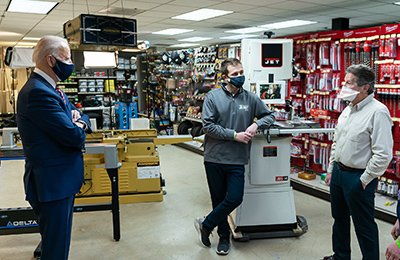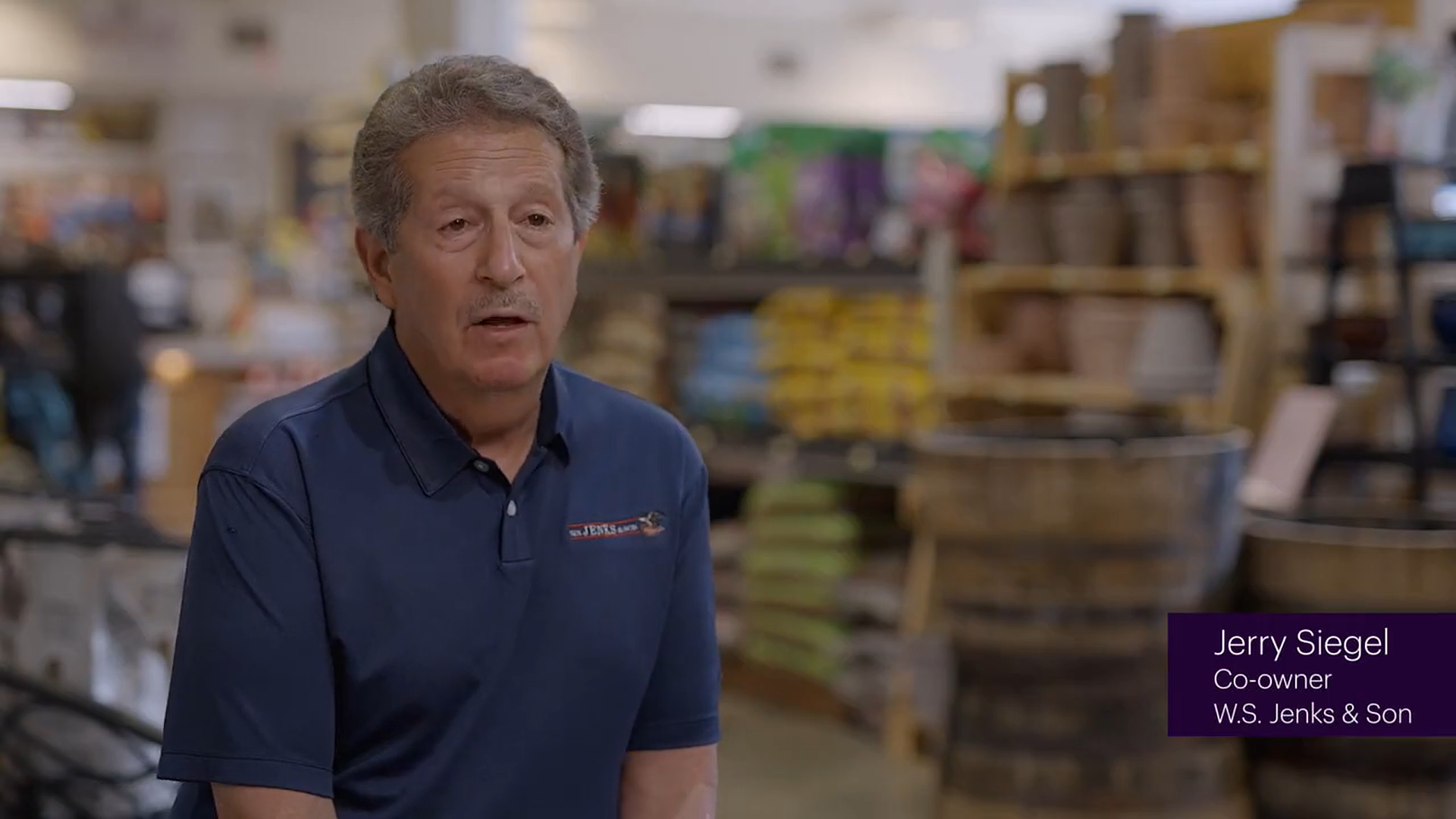“Is there anything you can do to help?” Jerry Siegel was on the phone with his bank. It was spring 2020, and COVID-19 was threatening his business and the health of his employees.
Siegel and his son, Mike, own one of the oldest hardware stores in Washington, D.C. Their news-conscious customers began raising concerns about the coronavirus as early as January 2020. “Things just spiraled out of control so quickly,” says Mike Siegel.
In February, the store sold out of protective masks.
Then came the shutdown of nonessential businesses.
W.S. Jenks & Son, deemed essential, never shut its doors. But there was still a problem: They had several employees older than 60. “We have at-risk employees,” says Mike Siegel. “We had an obligation to them.”
That’s when the two men went to work to protect them—and their 155-year-old business.
Taking care of family
W.S. Jenks & Son is the kind of workplace you don’t leave; a lot of its staff had been there a long time. Jerry and Mike Siegel were worried about them.
So the co-owners changed work schedules to keep everyone as safe as possible, and they “took all of our at-risk employees, and sent them home,” says Mike Siegel.
James Frink, 66, commercial and government sales manager, is one of the employees who went home. He’s been at W.S. Jenks & Son for 30 years. “Jerry told me, ‘I’m going to take care of you,’ and he did,” says Frink.
Helping a staple of the community
Even though the historic business was deemed essential, it was struggling. Mike Siegel says 60% of W.S. Jenks & Son’s business comes from its government and commercial sales, and for part of 2020, those sales were completely gone. With business reduced, the Siegels looked into the Paycheck Protection Program (PPP). They called their bank, Truist, for assistance.
“The PPP loan, as it’s affectionately called, is a low-interest-rate loan program the government established to help businesses that were adversely affected by the COVID-19 pandemic,” says Bernita Bailey, market president for the Truist suburban Maryland region.
Bailey says PPP loans cover certain expenses, such as payroll, that keep a company going. If businesses used the funds for designated expenses, the PPP loan potentially could be forgiven.
Robert Johnson, assistant vice president of the Truist commercial banking group, has worked with W.S. Jenks & Son for several years. “They’re one of my favorite clients,” he says. He was eager to help the business with the loan process.
W.S. Jenks & Son got two PPP loans during the pandemic and kept its doors open and its staff paid. “W.S. Jenks paid my full pay the whole entire time I was out,” says Frink. “I didn’t miss a paycheck; I was one of the fortunate ones.”
“A lot of it had to do with the kind of banking relationship we had,” says Mike Siegel. W.S. Jenks & Son has banked with BB&T, now Truist, since 1998. “We had a longstanding relationship,” he says, “and those loans were pretty easy to get as a result.”
Saving a store with a history
Through world wars, moon landings, and the invention of the Phillips-head screwdriver, W.S. Jenks & Son has seen its share of historic events. The store has been in operation since 1866.
W.S. Jenks & Son survived wars, depressions and recessions, terror attacks, and social unrest. But the pandemic was the historical event that threatened its survival.
“W.S. Jenks is a staple of the community,” says Johnson. “If they would’ve shut their doors, the employees and the owners would’ve felt the hit, but the community morale would’ve taken a hit, too. I can only imagine how discouraging it would’ve been for the neighbors, who have done business with W.S. Jenks for years, to see it closed.”
Turning a large ship quickly
When COVID-19 struck the U.S., Bailey says that Truist acted fast to help small-business owners.
“Banking can be like a very large ship,” she says. “It takes a lot to turn that ship. Creating an online portal for clients to apply for PPP was no easy task. But we put something together quickly.”
“I’m really proud of how Truist responded to COVID-19,” says Johnson. “We didn’t think about our own issues. We thought about our customers’ issues.”
Mike Siegel describes Truist as both a community bank that knows its clients and a large bank with the resources to help. “Having that good relationship with Truist has helped us through a lot of tough times,” he says. “And we’re fortunate to maintain that good relationship.
“If we were with a different bank, we might not be in business today,” says Jerry Siegel. “We always have somebody there we can call when there’s a problem.”
Building better lives and communities

Today, W.S. Jenks & Son is thriving again. Most of its employees are back at work full time, and those still working from home are being paid. On March 9, 2021, President Joe Biden paid a visit to the store to hear how the PPP loans helped save the business.
“Our purpose at Truist is to inspire and build better lives and communities,” says Bailey. “It’s very important to make sure stores like W.S. Jenks can stay open, and the PPP loan did exactly that. If that’s not living our mission, I don’t know what is.”
“That program was exactly what businesses like ours needed,” says Jerry Siegel.
Since working with the store, Bailey has become a regular W.S. Jenks & Son customer. “I don’t live near W.S. Jenks, but I am a customer now. I bought seeds from them and now I have lettuce, peppers, tomatoes, spinach, and onions growing. I have a piece of W.S. Jenks in my own backyard.”
Learn more about Truist business recovery tools here.
